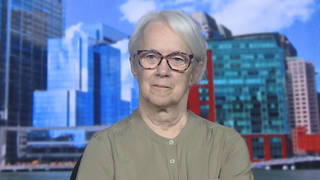
Topics
Since September 11 teachers, students and activists around the country have been targeted for speaking out against the U.S. bombing of Afghanistan in particular and US. foreign policy more generally. Among the latest examples is a report from the conservative American Council of Trustees and Alumni that lists more than 100 students and professors who have spoken out since September 11th as examples of un-American activity.
While this crackdown on dissent has not prevented activists from speaking out against the racial profiling of Araband South Asian communities, or from organizing against war, it has certainly sparked debate about how much activistscan do. Many in New York’s activist community, for example, say it is harder to protest in the streets since theSeptember 11th attacks brought the city into mourning. Rallies against the war in Afghanistan have brought 10,000people into the streets but protests for other issues, such as against the World Trade Organization trade talks, weresmaller and calmer than originally planned.
During the meeting of the WTO last weekend, activists gathered in New York to strategize about how to organizeagainst corporate globalization and against the war. One of the speakers at the US Strategy Summit organized by theNew York anti-war coalition on Friday night was Cindy Milstein, of The Institute for Social Ecology in Vermont.
Tape:
- Cindy Milstein, The Institute for Social Ecology in Vermont.
Related links:











Media Options